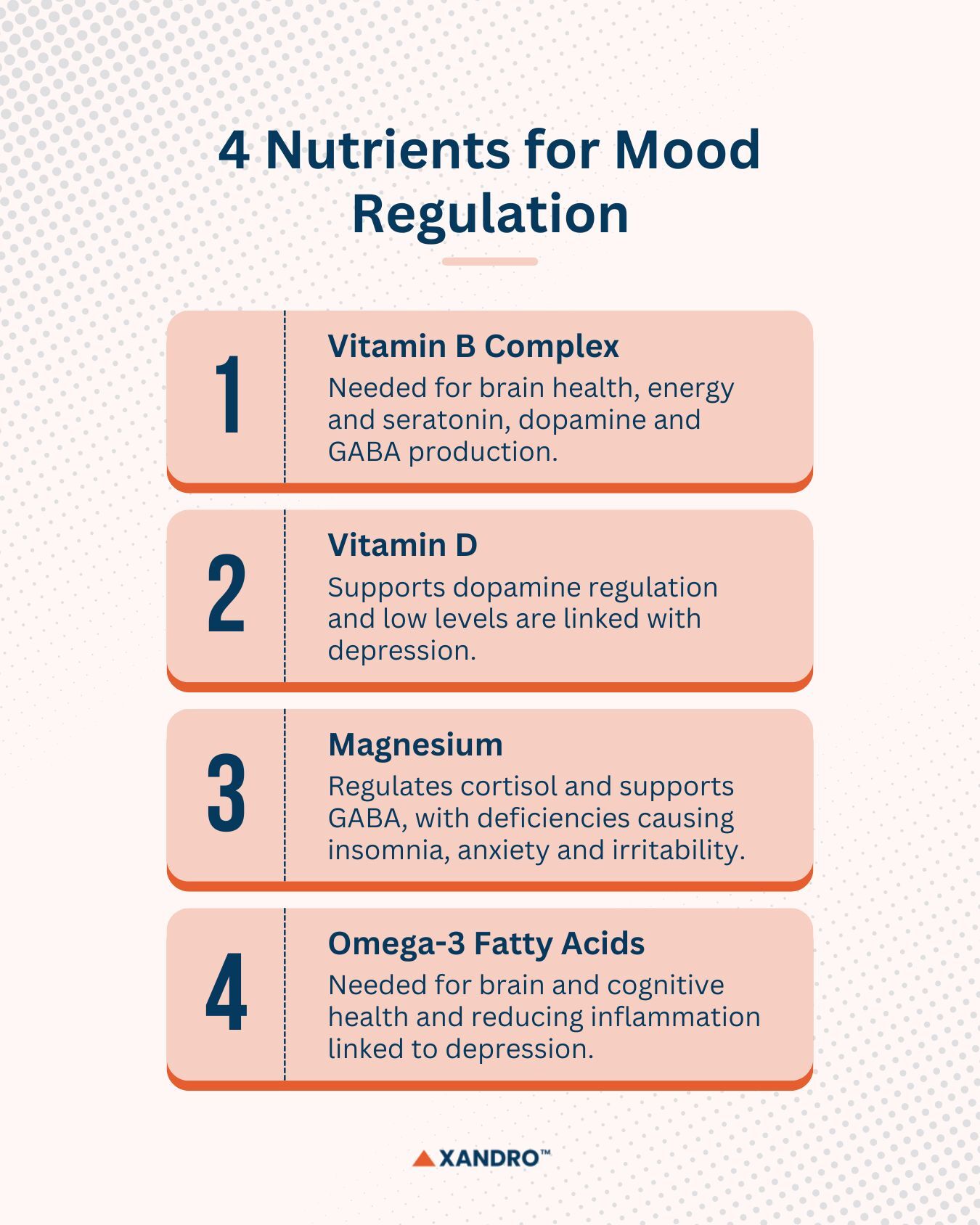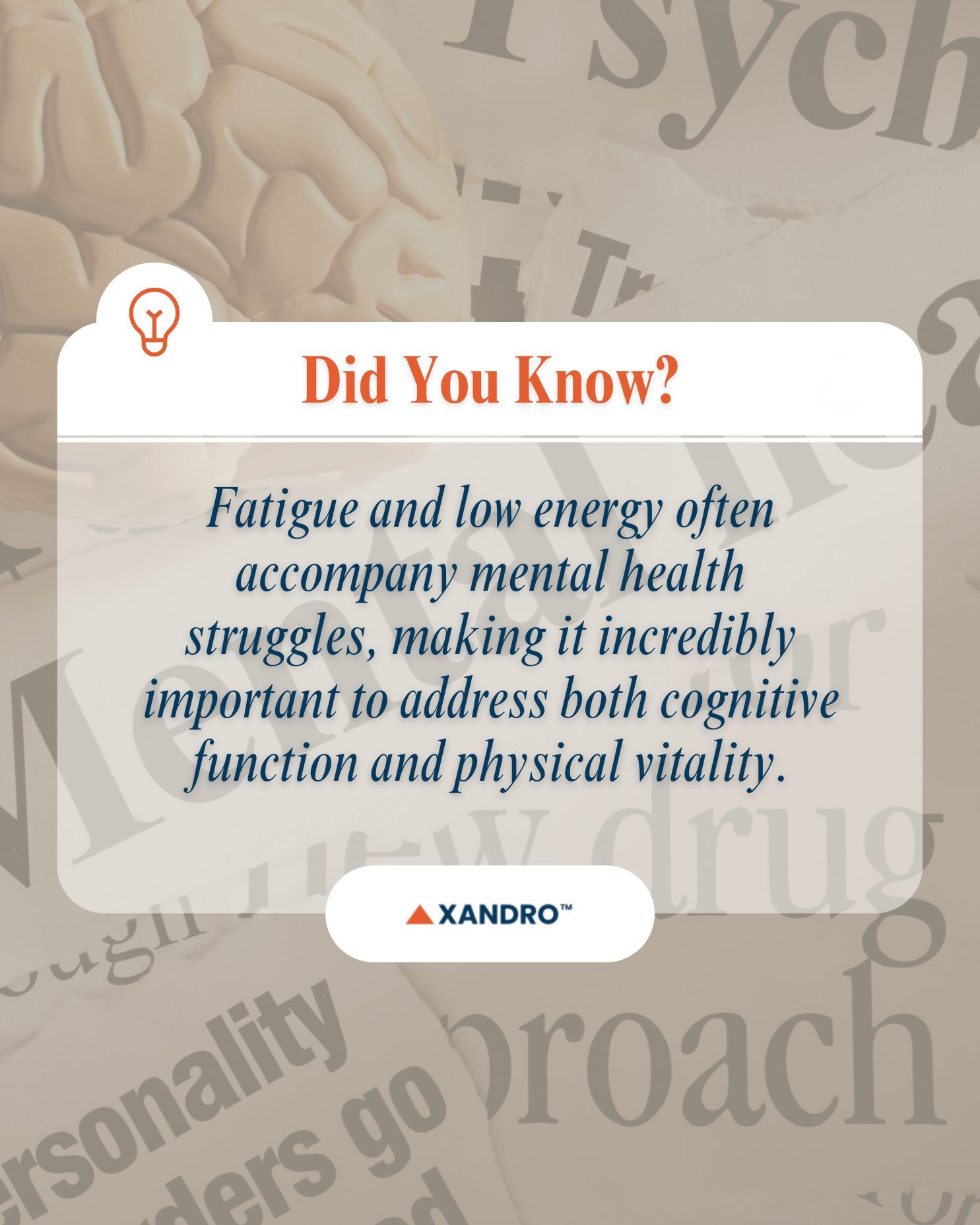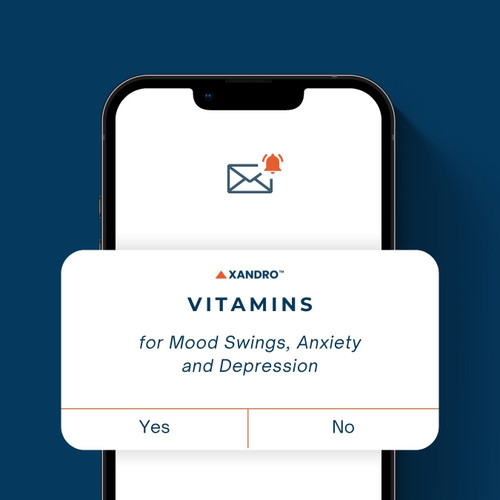What Vitamins Are Good for Mood Swings?
29th Jul 2025
Vitamins for Mood Swings, Anxiety and Depression
Do you ever feel like your mood is all over the place; happy one minute, irritable or down the next? Or maybe you struggle with constant anxiety or low energy that drags you down? What you eat (or don’t eat) could be playing a big role in how you feel.
Just like a car needs the right fuel to run smoothly, your brain needs the right nutrients to stay balanced and energised.
Certain vitamins for mood swings, like B vitamins, vitamin D and magnesium, help your brain produce chemicals that keep you feeling calm, focused and happy. If you're missing these key nutrients, you might notice more anxiety, fatigue, or even symptoms of depression.
The good news? Simple changes to your diet or adding the best vitamins for mental health and energy can make a real difference. So, if you’ve ever wondered what vitamins are good for mood swings, the supplements and vitamins below may help boost your mood in various ways, so think of them like legal mood enhancing drugs.
Best Vitamins for Mood Swings and Mental Health
Mood swings and mental health challenges can be influenced by nutritional deficiencies, particularly in key vitamins that regulate brain function and neurotransmitter production. Making sure you get enough of these vitamins can help stabilise your mood, reduce symptoms of depression and anxiety, and improve overall mental health.
Interested in which ones may help you and what are some vitamins for mood swings and depression and anxiety? Let’s go over some:
Key Vitamins for Mood Regulation
Vitamin B Complex (B6, B9, B12)
B vitamins are needed for brain health, energy production and neurotransmitter synthesis. They are also some of the best vitamins for mood swings and anxiety and depression, as deficiencies in these vitamins have been strongly linked to depression, anxiety and cognitive decline.
- Vitamin B12
As mentioned above, vitamin B12 is needed for red blood cell formation and serotonin production (a neurotransmitter that regulates mood). A deficiency in this vitamin can cause fatigue, irritability, depression and cognitive impairment, which is common in vegetarians, older adults, and those with digestive disorders (e.g., celiac disease, Crohn’s). Vitamin B12 is found in fish, meat, poultry, eggs, dairy and fortified cereals.
- Folate (Vitamin B9)
Low folate levels are linked to depression. Folic acid supplements (synthetic folate) may also improve the effectiveness of antidepressants. Folate is found in leafy greens, citrus fruits, beans and fortified grains.
- Vitamin B6
Supports serotonin, dopamine and GABA production (neurotransmitters that regulate mood and relaxation). A deficiency may lead to irritability, anxiety and insomnia. This is found in foods like chickpeas, fish, potatoes, bananas and fortified cereals.
Vitamin D
Often called the ‘sunshine vitamin,’ low vitamin D levels are linked with depression and seasonal affective disorder (SAD). Vitamin D also supports dopamine regulation, which affects motivation and mood. You can get vitamin D through sunlight, fatty fish like salmon and mackerel, fortified dairy and supplements (especially in winter).
Magnesium
Magnesium helps regulate stress hormones (cortisol) and supports GABA, a calming neurotransmitter. Deficiency may cause anxiety, insomnia and irritability. Other than supplements (it’s best to take highly absorbable but gentle on the stomach forms, such as Magnesium Glycinate), it’s found in leafy greens like spinach, nuts like almonds, seeds like pumpkin seeds and dark chocolate.
Omega-3 Fatty Acids:
Needed for brain health, reducing inflammation linked to depression. EPA and DHA (types of omega-3s that come from animal sources) may improve mood and cognitive function. For supplementation, it’s best to take LPC-bound omega-3s, such as LPC Neuro, which contains LYSOVETA™, as this actually crosses the blood-brain barrier. Naturally, omega-3 fatty acids are found in foods like fatty fish (salmon, mackerel, sardines), flaxseeds, chia seeds and walnuts.
Further Reading: Why Traditional Fish Oil Omega-3s Don’t Help Your Brain
Zinc
Zinc supports neurotransmitter function (serotonin, dopamine) and reduces oxidative stress. Low levels may worsen anxiety and depression, so make sure to get your bloodwork checked to see how your levels are. You can get a boost of zinc and vitamin C with Xandro’s Zinc Picolinate + C, or naturally through meat, shellfish, nuts, seeds and legumes.

Additional Supplements for Mood Stability
|
Supplement |
Benefits |
Dosage |
Safety Notes |
|
Ashwagandha |
An adaptogen that reduces cortisol (stress hormone), improves anxiety & mood. |
Avoid with sedatives. |
|
|
L-Theanine |
Promotes relaxation without drowsiness (found in green tea). |
Safe for most people. |
|
|
St. John’s Wort |
May help mild to moderate depression (similar to SSRIs). |
300–600mg/day and up to 900mg for depression |
Interacts with antidepressants, birth control. |
|
Probiotics |
Gut health influences serotonin production (90 per cent is made in the gut). |
Varies by strain |
Choose high-quality strains (e.g., Lactobacillus, Bifidobacterium). |
|
Melatonin |
Regulates sleep cycles, helps with anxiety-induced insomnia. |
Best for short-term use. |
Further Reading: Side Effects of St. John’s Wort
Best Vitamins for Mental Health and Energy
Fatigue and low energy often accompany mental health struggles, making it incredibly important to address both cognitive function and physical vitality. Certain vitamins and minerals play a key role in energy metabolism and brain health.
Top Vitamins for Energy & Mental Clarity
- B Vitamins (B1, B2, B3, B5, B6, B12): Think of B vitamins as your brain's power squad. B12 keeps your energy up and sharpens your thinking—without it, you might feel constantly tired or foggy. B1 (Thiamine) is like your brain's fuel converter, turning food into mental energy—low levels can leave you sluggish and confused. B5 (Pantothenic Acid) helps your body handle stress better, so you don't crash when life gets hectic. The best food sources are meat, eggs, dairy, whole grains and legumes.
- Vitamin C: This isn’t just for immunity, it also helps your body manage stress and absorb iron (which keeps your energy stable). Skip it, and you might feel worn out faster. Get it from foods like citrus fruits, capsicum and strawberries.
- Iron: Iron’s main job is to carry oxygen in your blood. Too little means less oxygen to your brain and more fatigue, poor focus and that ‘brain fog’ feeling. You can get iron from red meat, spinach and lentils (pair with vitamin C for better absorption).
- Coenzyme Q10 (CoQ10): This natural compound helps your cells make energy. As you get older, your body makes less of it, which is why some people take supplements to fight fatigue. Get it from fatty fish, organ meats like liver, or supplements, if needed.
You can read about more supplements for energy and focus here.

Dietary Tips for Mental Energy:
- Eat balanced meals with protein, complex carbs and healthy fats.
- Stay hydrated (dehydration worsens fatigue).
- Limit caffeine and sugar as these can worsen anxiety and depression.
- Exercise regularly as this boosts endorphins and serotonin.
- Get enough sleep (between 7–9 hours per night).
- Consider blood tests to check for deficiencies (B12, D, magnesium).
When to See a Doctor
- If mood swings, anxiety, or depression persist despite dietary changes.
- Before starting supplements (some interact with medications).
- If experiencing severe symptoms (suicidal thoughts, extreme fatigue).
End Note
If mood swings, anxiety, or depression are making life harder, the right vitamins and supplements could help you immensely. While they’re not a magic fix, the above nutrients may give your brain the tools it needs to regulate emotions and energy levels.
Think of it this way: if your brain is a smartphone, these vitamins are like the battery and software updates, keeping everything running smoothly. Eating a balanced diet, getting enough sunlight and considering supplements (after checking with your doctor) can help you feel more stable and energised.
Also, while vitamins and supplements can support mental health, they should complement, not replace, professional treatment (therapy, medication if needed). Always speak with your medical professional before making changes to your regimen.
Tags:
